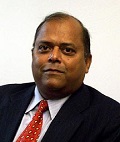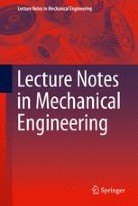

 Ramesh K. Agarwal
Ramesh K. AgarwalFollowing the successes of previous events, the 9th International Conference on Manufacturing, Material and Metallurgical Engineering will take place in Okinawa, Japan from July 23-25, 2025.
ICMMME aims to exchange innovations and new ideas in the field of manufacturing, material and metallurgical engineering under the theme Optimization of Mineral, Mining, and Material Resources for Economic Sustainability in The Digital Transformation Era. Interesting and important topics covered were metallurgy manufacture, innovative materials, materials modeling and optimization, corrosion and failure analysis, extractive metallurgy, biomaterials/biomedical applications, smart material applications and innovative manufacturing applications.
The key goal of the conference is aimed at bringing
together academicians, scientists, engineers, and
researchers working in various disciplines of these fields
to exchange views as well as to share their expertise,
experience and research results, and discuss the challenges
and future directions in their specialized areas of research
in these fields.
We look forward to your participation and continued engagement at future ICMMME conferences.
Gentle Reminder: The organizing committee will not ask delegates to provide credit card information for any purpose. The registration will be completed only via conference system. Please be alert.
 |
Accepted and registered full papers will be published by Springer in the book series Lecture Notes in Mechanical Engineering, and abstracted and indexed in: EI Compendex, SCOPUS, SCImago, etc. |
| Organized by |
Co-sponsored by |
Technical Supported by |
Media Partner |
 |
 |
  |
 |
 |
|||
© ICMMME 2025 | Okinawa, Japan | Email: icmmme_academic@outlook.com